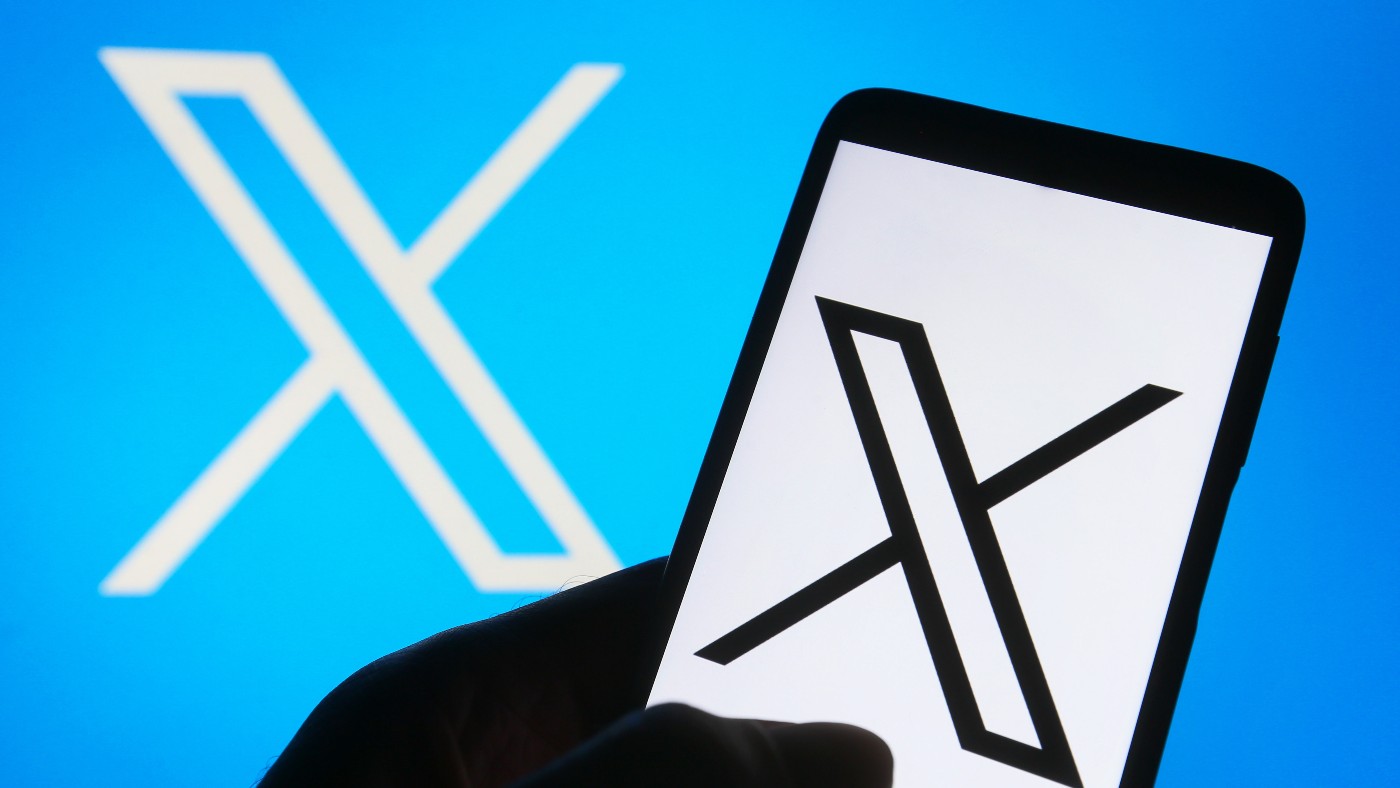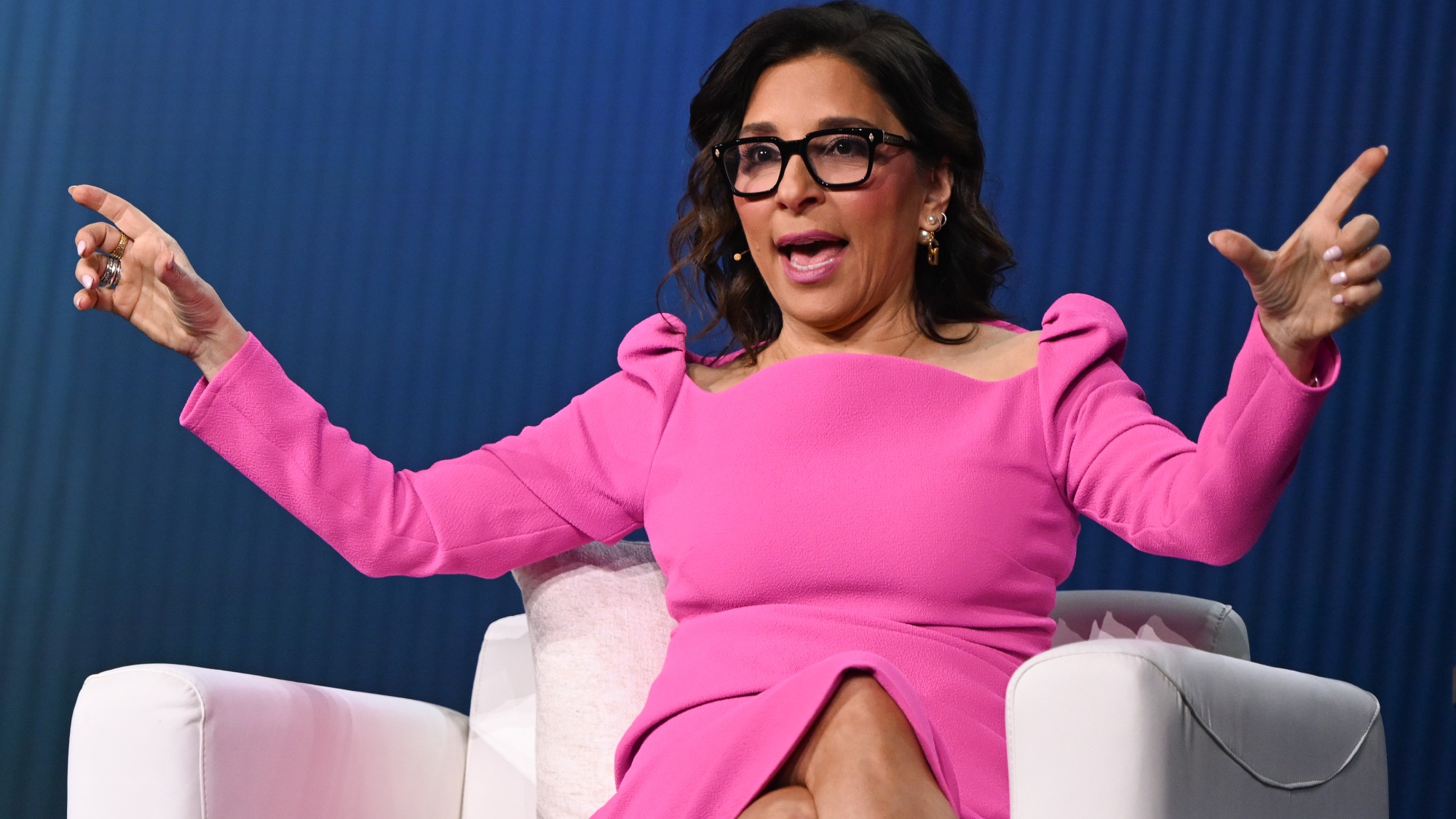Twitter to X and five other controversial rebrands from history
Elon Musk’s decision joins a long list of derided company changes

A free daily email with the biggest news stories of the day – and the best features from TheWeek.com
You are now subscribed
Your newsletter sign-up was successful
Twitter’s blue bird is soon to be no more as owner Elon Musk this week announced the company’s logo is to be a black X.
Rebranding the website that was founded in 2006 has already begun in earnest, with Musk suggesting he plans to turn Twitter “from a social media platform into an everything app”, said NPR.
However, the decision has been widely ridiculed. The change is “pointless” and “sordid-sounding”, said Forbes, who criticised Musk for “setting something on fire he paid $44 billion for”.
The Week
Escape your echo chamber. Get the facts behind the news, plus analysis from multiple perspectives.

Sign up for The Week's Free Newsletters
From our morning news briefing to a weekly Good News Newsletter, get the best of The Week delivered directly to your inbox.
From our morning news briefing to a weekly Good News Newsletter, get the best of The Week delivered directly to your inbox.
The billionaire owner may also risk “more damage to Twitter’s business”, CNBC added, with the brand already “increasingly vulnerable to competition”.
Twitter’s rebrand is not the first to have disappointed consumers. Here, The Week takes a look at some of the most controversial in history.
Royal Mail
A 2001 decision to rebrand Royal Mail as Consignia was “costly and much-mocked”, said the Financial Times.
The group initially claimed the Consignia name would describe “the full scope of what the Post Office does in the way that the words ‘post’ and ‘office’ cannot”.
A free daily email with the biggest news stories of the day – and the best features from TheWeek.com
However, “one of the most derided names in recent corporate history” ultimately ended up being “consigned to the scrapheap” just over a year later, The Guardian reported.
The subsequent name change to Royal Mail Group was estimated to cost “about £1 million compared with the £1.5 million spent on the Consignia launch”, the newspaper added.
Ukip
The right-wing political party “swiftly reverted” a decision to change its logo to that of a lion’s head in 2017, the Evening Standard reported, after receiving backlash from the Premier League, which stated its lion symbol was “very similar”.
Initially, a Ukip spokesperson told The Sun the lion was “broadly recognised as a symbol of Britain” and denied any breach of copyright.
Paul Oakden, the former party chairman, told the BBC’s “Daily Politics” programme the lion logo was “forward-facing, it is proud, it is determined”, and said he was “not worried” about potential legal action, as the party “did our due diligence”.
Gerard Batten, who took over as the party’s leader in 2018, decided to scrap the lion logo. The decision was not “mourned in Ukip circles”, The Telegraph said, as one source told the newspaper: “Aslan is dead”.
BP
At the turn of the millennium, oil giant British Petroleum changed its name to BP and rebranded itself as ‘beyond petroleum’. The decision was combined with a new logo featuring a sunburst described as a Helios mark, after the Greek sun god. This logo is still in use by the organisation.
However, activists accused the firm of greenwashing, a process where an organisation spends more time and money marketing itself as environmentally friendly than it does on actually minimising its environmental impacts. The brand was ultimately forced to back down.
Writing for The Guardian, Fred Pearce slammed the decision, stating “no amount of clever advertising can hide the fact that its billions of pounds of profit and investment is still all about fossil fuels”.
HBO Max
The 2023 decision by Warner Bros. to rebrand HBO Max as simply Max “baffled” TV insiders, said the Daily Dot, with many viewing the move to drop the well-known HBO as an “inexplicable act of self-sabotage”.
It was described as the “rebrand blunder of the year” by Fast Company, who also critiqued the brand’s “almost too-ridiculous-to-believe tagline” of “the one to watch”.
Warner Bros. executives outlined several reasons for the decision, but the idea of making the brand more “family friendly” was seen as a key driver.
At the brand’s launch event, head of streaming J.B. Perrette told the audience: “HBO is not exactly where parents would most eagerly drop off their kids.”
TGI Fridays
The rambunctious American restaurant chain was born in 1965, with the original founder suggesting the name meant “Thank God it’s Friday”.
However, after 55 years of successful branding, in 2020 the restaurant decided to make a major change. TGI was dropped from the logo, which simply read “Fridays”. The famous red and white colours in the logo were also abandoned in favour of plain black font.
The shift “didn’t go down well”, said National World, and ultimately “didn’t last long” as the brand reverted to its original name this year.
Rebekah Evans joined The Week as newsletter editor in 2023 and has written on subjects ranging from Ukraine and Afghanistan to fast fashion and "brotox". She started her career at Reach plc, where she cut her teeth on news, before pivoting into personal finance at the height of the pandemic and cost-of-living crisis. Social affairs is another of her passions, and she has interviewed people from across the world and from all walks of life. Rebekah completed an NCTJ with the Press Association and has written for publications including The Guardian, The Week magazine, the Press Association and local newspapers.
-
 How to Get to Heaven from Belfast: a ‘highly entertaining ride’
How to Get to Heaven from Belfast: a ‘highly entertaining ride’The Week Recommends Mystery-comedy from the creator of Derry Girls should be ‘your new binge-watch’
-
 The 8 best TV shows of the 1960s
The 8 best TV shows of the 1960sThe standout shows of this decade take viewers from outer space to the Wild West
-
 Microdramas are booming
Microdramas are boomingUnder the radar Scroll to watch a whole movie
-
 Are AI bots conspiring against us?
Are AI bots conspiring against us?Talking Point Moltbook, the AI social network where humans are banned, may be the tip of the iceberg
-
 Elon Musk’s pivot from Mars to the moon
Elon Musk’s pivot from Mars to the moonIn the Spotlight SpaceX shifts focus with IPO approaching
-
 Moltbook: the AI social media platform with no humans allowed
Moltbook: the AI social media platform with no humans allowedThe Explainer From ‘gripes’ about human programmers to creating new religions, the new AI-only network could bring us closer to the point of ‘singularity’
-
 Will regulators put a stop to Grok’s deepfake porn images of real people?
Will regulators put a stop to Grok’s deepfake porn images of real people?Today’s Big Question Users command AI chatbot to undress pictures of women and children
-
 Inside a Black community’s fight against Elon Musk’s supercomputer
Inside a Black community’s fight against Elon Musk’s supercomputerUnder the radar Pollution from Colossal looms over a small Southern town, potentially exacerbating health concerns
-
 X update unveils foreign MAGA boosters
X update unveils foreign MAGA boostersSpeed Read The accounts were located in Russia and Nigeria, among other countries
-
 What's Linda Yaccarino's legacy? And what's next for X?
What's Linda Yaccarino's legacy? And what's next for X?Today's Big Question An 'uncertain future' in the age of TikTok
-
 X CEO Yaccarino quits after two years
X CEO Yaccarino quits after two yearsSpeed Read Elon Musk hired Linda Yaccarino to run X in 2023